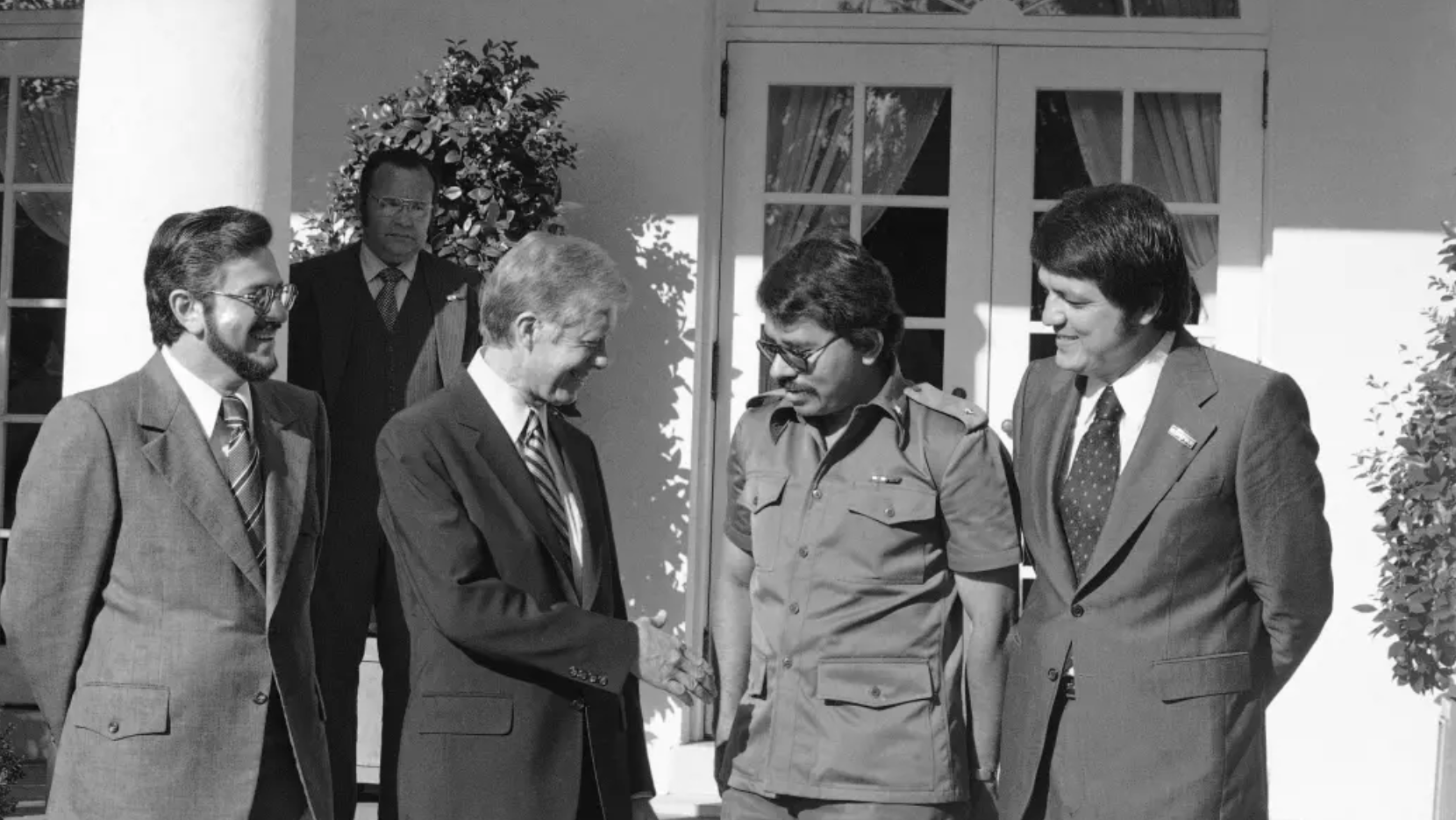With former US President Jimmy Carter in hospice care, Latin America and the Caribbean are about to lose a respectful interlocutor who cared deeply about the region.
Long before being elected president in 1976, Jimmy Carter traveled with his family to Mexico and spent a weekend in Cuba. He picked up a little Spanish, and later made a habit of reading a page of the Bible in that language every night before bed. Although he continued to rely on interpreters for political meetings, he was able to deliver a spur-of-the-moment homily in passable Spanish to a protestant gathering when he visited Cuba again in 2002.
As governor of Georgia, Carter invited the Organization of American States (OAS) to hold its General Assembly in Atlanta, the first time they had met within the United States anywhere other than Washington DC.
As president, he addressed the OAS General Assembly every time the foreign ministers met in Washington. Decades later, in 2005 the OAS hosted former President Carter as an honored guest lecturer on regional affairs, which he continued to follow with interest. And in 2008, he once again collaborated with the OAS to help re-establish normal diplomatic relations between Ecuador and Colombia.
Upon taking office in 1977, Carter immediately began negotiations to end US control over the Panama Canal, something several presidents before him had attempted without success. He would visit Panama in 1978 to mark the approval of the Treaties by Panama, meeting with many Latin American leaders there. In his post-presidency, Carter officially represented the United States at the 1999 ceremony transferring the Canal to Panama.
During his presidency, Carter periodically consulted with democratically elected Latin American and Caribbean leaders about US policy toward the region. In 1978 he traveled to then-democratic Venezuela, and he also visited authoritarian Brazil where he made clear that respect for human rights was now an integral element of US foreign policy, pressuring for release of political prisoners.
In Brazil and Mexico he took the unprecedented step of addressing the Congress rather than just conferring with his counterpart. Simply put, no US president since Franklin D. Roosevelt had given Latin America such high-level attention and access. Nonetheless, given the persistent underdevelopment in the region, President Carter refrained from selling advanced weaponry to Latin America and urged governments to invest their scarce resources in social services.
After losing the 1980 election to Ronald Reagan, former President Carter took up a career as a celebrated international figure. In 1982 he founded The Carter Center, a non-governmental organization based in Atlanta that is dedicated to peace, world health, democracy, human rights and development in the world’s least developed countries. Among these was Haiti, where former President Carter undertook a successful mission with Senator Sam Nunn and Gen. Colin Powell (Ret.) to persuade Haiti’s military rulers to leave office peaceably rather than subject their country to a UN-authorized invasion by US troops.
Carter denounced fraudulent elections held in 1989 under Panamanian dictator Manuel Noriega and conversely confirmed Violeta Chamorro’s victory over Daniel Ortega in Nicaragua’s 1990 elections. Later The Carter Center would monitor other tense elections in Jamaica, the Dominican Republic, Nicaragua, Venezuela, Peru and Guyana, bringing former presidents and prime ministers from democracies throughout the region to co-lead those missions with former President Carter. Even Mexico, historically the country most sensitive to intimations of US intervention, viewed Carter as independent enough to warrant an invitation to the 2000 Mexican elections that ended decades of political dominance by the PRI party.
Carter did not play favorites. He stood by the principle that elections should be free and fair, and their results respected by losing parties and the military, regardless of the politics of the winner or the preferences of the United States. His commitment to Latin American sovereignty was a far cry from the gunboat diplomacy and military occupations that the United States had perpetrated in the 1930s and later CIA covert operations to overthrow democratically elected presidents in Guatemala (1954) and Chile (1973).
In 2002, former President Carter would take the extraordinary step of traveling to Cuba, something no former or current US president had done since the 1959 revolution. In a speech broadcast directly to the Cuban people, with Fidel Castro sitting in the front row, President Carter called on the United States to end the embargo as an ineffective and inappropriate policy, and also made Cubans aware of the Varela Project, an initiative to convoke a free election in Cuba through a referendum mechanism.
Not all of these efforts brought lasting positive results. Cuba remains authoritarian, and some elected leaders such as Aristide, Ortega and Chávez undermined democratic institutions rather than risk losing power. Nonetheless, pro-democracy leaders and civil society groups will miss having Jimmy Carter as a politically experienced, thoughtful listener who was well-connected in US foreign policy circles. No other US president has devoted so much time and attention to the people and problems of Latin America and the Caribbean.













